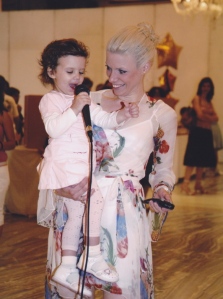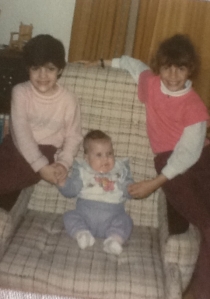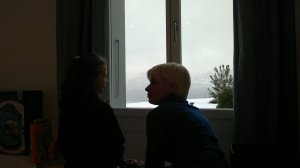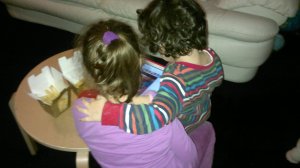I have always considered myself a “Show Woman” type of teacher, meaning that I am very, correction, extremely enthusiastic and expressive when teaching. I enjoy making the lesson fun along with educative and also encouraging. I like turning something small into a big deal for our students; a huge achievement!
I am like that as a mother, too. I sometimes tend to overdo it, like Ms Frizzle from Scholastic’s The Magic School Bus, literally even dressing up according to the event or activity, but I love doing so.
What has been an essential tool for these in-house and school events are songs: Rhymes, traditional children’s songs, course book songs, songs from educational DVDs, songs from several audio storybooks, even songs from our own childhood.
Both my children and students are proof that songs have helped our lessons grandly throughout the eight years of being a mother and seventeen years of being an English language teacher:
* Our students, who are non-native speakers, have learnt words and phrases unbelievably fast and easily just by singing to these educationally fun rhythms
* Our students, who are native speakers, have realized the exact meaning or articulation of a word while singing
* My children have not just experienced everything above mentioned, but have also expressed an opinion on a song. I will never forget when I was singing the lullaby:
Hush-a-bye baby, on the tree top,
When the wind blows the cradle will rock,
When the bough breaks the cradle will fall….
And all of a sudden, four years after listening to this exact lullaby from beginning to end, Maggie, shocked, gets up from her bedtime pose and asks me to change the ending of the song on the spot. That it is not proper to sing the lullaby as it is. So from then on, to this day, …
… In mommy’s arms,
Maggie & Nicholas shall sleep …
is the new ending to that all-time classic. And Nicholas, being three-and-a-half today, has yet to hear Maggie’s forbidden version of the lullaby!
* Our students and my children practised and improved their skills in colours, numbers, letters, pronunciation and so many other topics.
* Under our family roof, this does not just apply to English, but to all three languages the children speak. And yet again, we have invested in providing them with equal language opportunities even in the audio sector.
* Children’ s interest and love in learning a language increases vertically through songs and the younger they are the more frequently you can use them during a lesson. I learnt this very well in my early years of teaching when I was responsible for the English Language at a private Nursery / Kindergarten in Greece for 7 years. They were aged three and a half to five and a half, were learning English as a Second language and were among the most productive projects I have ever done. Educational children’s songs were among my basic and best tools. We had even managed to put on plays including English songs. Some parents had even congratulated us as they felt their children spoke and sang the English performance better than their native language Greek play.
* In order for the songs to produce results, the teachers must have fun too while performing them! While enjoying them. While teaching them. While reenacting them and even reinventing them!
* There is another aspect to songs. Music itself. Being a former dancer (ballet – jazz – tap) I know the majestic essence of classical music. In our former school, The Loras English Academy, we tried something. In the hallways of the school, we would play classical music at a very low volume during lesson time. Teachers, students and parents gave us nothing but excellent feedback. During the breaks we would pause it.
* This is also applied at our home just before bedtime. After having studied two books on young children and pleasant sleep solutions (New Toddler Taming, by Dr Christopher Green and The No-Cry Sleep Solution by Elizabeth Pantley) and doing my best to adjust all this information to our family’s schedule and personality, we listen to classical music before the children fall asleep; at a very low volume. This even helps us parents calm down so as not to transmit any of our hyperactivity or stress on to our children.
* Music and songs have been used by us as English teachers with older students as well. Productivity in the classroom at its best, as excellently described by Vicky Loras through her blog post Born in The USA. Carefully selected lyrics from popular contemporary adult songs offer several teaching and learning opportunities.
I am very happy that I even remember songs I learned at school in Canada when I was a child. I sing them to both Maggie and Nicholas and they love them a lot. Not just as songs but also because they find it amazing that Mom used to be a child, too!
And while we listen to classical music, bedtime would not be complete without a story book!
Feat No 8 will take you to Story Land, books and all their wonders… in – house and at school!
References:
Green, C. (2006). New Toddler Taming. London, UK: Vermilion.
Pantley, E. (2005). The No-Cry Sleep Solution for Toddlers and Preschoolers. USA: McGraw-Hill.






